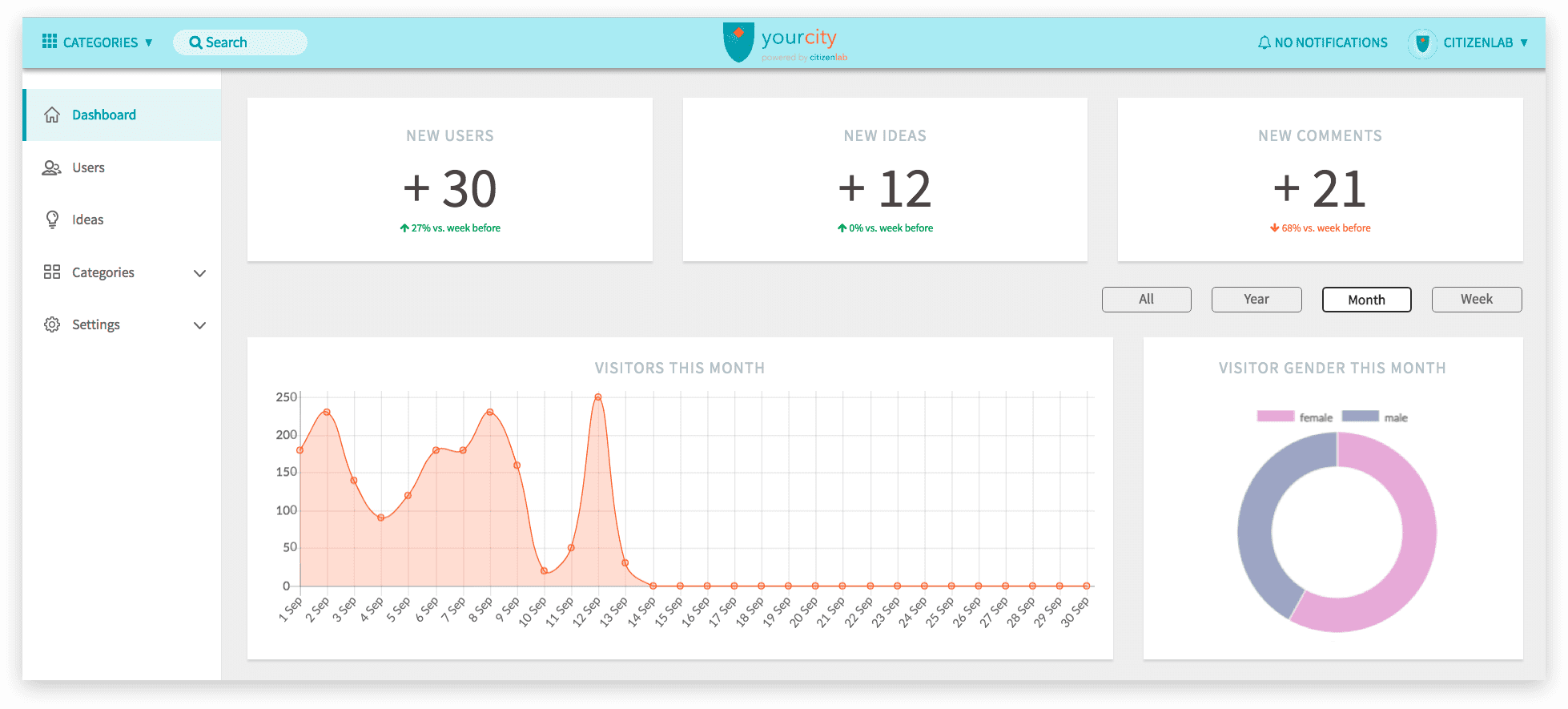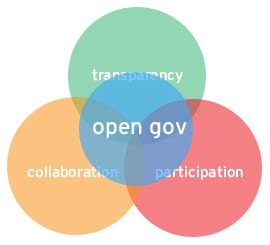Digital technology is rapidly transforming the way cities are engaging with their citizens, and vice versa. To stand out from the crowd as a city government, it is critical to embrace and implement the following four citizen engagement trends.
1. Multichannel Approach
An offline-only approach to citizen engagement is — especially at larger city governments — already a long time a thing of the past. Modern governments think digital first, for many well-known reasons. Today’s means of communication allow for an increased responsiveness, to which we are used in this era of real-time action.
The cost of online communication is significantly lower compared to offline means. Also, if you’d think of citizen participation instruments, giving your citizens the possibility to share their input on a digital platform, reduces tremendously the “cost per engaged citizen”.
Finally, engaging citizens online attracts way more residents than any other method. Younger citizens, for instance, are hard to reach out to for most of the city governments, due to their restriction in time available to engage with their government.
In short, policymakers and CIOs should look for a seamlessly integrated communication model that potentially strengthens the depth and width of citizen engagement by combining digital instruments (such as citizen engagement platforms and social media channels) with the more traditional methodologies (such as focus groups and town hall meetings).
2. Personalised Interface
The likelihood of participation will soar when you level up the relevance of participation. With so many things going in public policy, it is hard to keep your citizens engaged if one doesn’t care about half of the matter under discussion.
That’s why offering them an interface – such as a mobile app or web platform – in which they have the freedom to pick the topics about which they want to be kept in the loop (i.e. the ones that match their interests), increases the relevance to them. Relevance through personalisation is the holy grail in this age of a very limited attention span. Another way to provide more relevance, is by giving priority to all topics that are closest to their homes.
One could go even further by contextualising citizen participation. To give an example, citizens are more likely to share their ideas and frustrations about mobility when they’re in the public transport. The same is true for any cultural idea while you are in the theater or concert hall. Ask your citizens’ input at the right moment, at the right place.
Israel’s capital, Tel Aviv, leads the pack when it comes down to personalised, location-based citizen engagement.
3. Citizen Engagement Analytics
More and more governments start adopting citizen engagement dashboards which help them gaining insights on their citizens’ opinions from widely available streams of data.

Instead of thinking about ‘the voice of the citizen’, one can easily segment the voices of different citizen groups thanks to data analytics. This is key to add value to the decision-making processes within the city, as it helps you better understand how to adopt a more inclusive public policy by taking into account all interests.
To give a tangible example, cities are interested in knowing how opinions compare in their poorest neighbourhood to what citizens in more prosperous areas of the city expressed. The same is true for many other demographical variables (such as age, gender, education level, etc.) that help them gain insights into the opinions of their distinguishable citizen profiles.
4. Open Data
The number and variety of web APIs and public sets of open data continue to proliferate. Cities in particular are the driving force towards an open government that shares a plethora of public information and data. And for good reason: one of the main merits of a well-governed open data policy is that promotes citizen participation.
At the lowest level, open data is known to enhance transparency. It helps citizens understand for instance how last year’s budget was spent. City governments which are still hesitant about starting an open data policy – i.e. one that goes beyond uploading pdfs on a city website -, often fear the vulnerability that comes with the increased accountability.

Yet, beyond informing and improving transparency, open data can be used to make civic engagement flourish. Indeed, open data empowers communities of citizens to take actions themselves and enables them to co-create better public services together with their city. Citizens can for instance leverage mobility data to create bicycle projects, or use crime data to take appropriate collective measures to improve safety.
The step from transparency to engagement is for many cities a serious hurdle though. One of the struggles is related to building an inclusive open data policy. Namely, the lower the barrier to use open data (e.g. by releasing data that can be opened in a mass-adopted desktop software such as Microsoft Excel), the more engagement you can expect around your data.
Are we missing any other big trend?
We’d love to hear from you what you consider one of the big trends in citizen engagement. Feel free to start the discussion in the comments section below.





